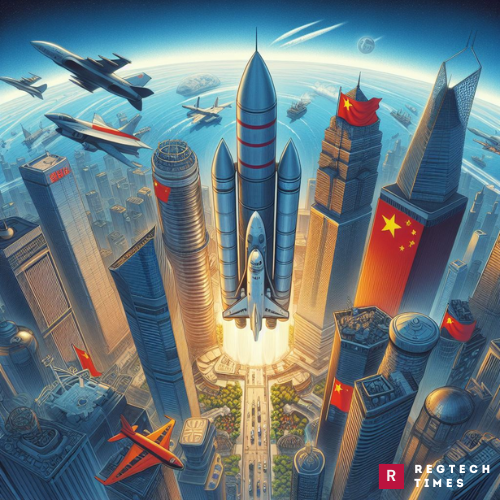In a significant move reflecting the escalating geopolitical tensions between China, the United States, and Taiwan, Beijing has imposed sanctions on several US defense-related companies and their senior executives. This action comes as a direct response to the US’s arms sales to Taiwan and previous American sanctions on Chinese companies linked to Russia. This article delves into the details of these sanctions, the entities involved, and the broader implications of this development.
Overview of Sanctions on US Defense Companies
China has sanctioned 12 US defense-related companies and 10 senior executives, including prominent entities such as Lockheed Martin, Raytheon, and General Dynamics. High-ranking executives from Northrop-Grumman Corporation and General Dynamics are also on the list. These sanctions, imposed under China’s Anti-Foreign Sanction Law, entail freezing all assets of the affected businesses within China and denying visas to the sanctioned individuals and their immediate family members. They are also prohibited from conducting any business with Chinese firms.
Context and Motivation Behind Sanctions
China’s decision to impose these sanctions is driven by two primary factors: the US’s continued arms sales to Taiwan and recent American sanctions on Chinese entities associated with Russia. The Chinese government has consistently opposed any form of military support for Taiwan, which it considers a breakaway province. Conversely, the US maintains its stance on supporting Taiwan’s defense capabilities, leading to recurrent friction with Beijing. Additionally, US sanctions on Chinese companies due to their alleged support for Russia have further strained bilateral relations, prompting China’s retaliatory measures.
Entities and Individuals Targeted
The sanctions list includes major players in the US defense industry. Lockheed Martin, a leading global security and aerospace company; Raytheon Technologies, known for its advanced defence systems; and General Dynamics, a key defence contractor, are all targeted. Northrop Grumman Corporation, renowned for its cutting-edge defence technologies, is also included. By targeting senior executives from these firms, China aims to send a strong message to the US defense sector and underscore its opposition to US policies.
Implications of the Sanctions
While the immediate practical impact of these sanctions might be limited, given the minimal direct business exposure these US defense companies have in China, their symbolic weight is considerable. These actions serve as a clear signal of China’s readiness to leverage its economic and political tools in response to perceived threats to its sovereignty and national security. The sanctions also add complexity to the already strained US-China relations, contributing to a cycle of retaliation that could have broader implications for global stability. For instance, the defense companies targeted by these sanctions are integral to the US’s defense infrastructure, and any disruptions, even symbolic ones, could have ripple effects.
Broader Geopolitical Impact
The sanctions are part of a broader pattern of tit-for-tat measures that have characterized US-China relations in recent years. Beyond the immediate economic and political ramifications, these sanctions highlight the deepening strategic rivalry between the two nations. Taiwan remains a particularly sensitive issue, with both sides showing little willingness to compromise. For Taiwan, US support is crucial for maintaining its defense posture against potential Chinese aggression. Conversely, for China, preventing any form of international recognition or military support for Taiwan is a core aspect of its national policy. This dynamic ensures that Taiwan will remain a flashpoint in US-China relations for the foreseeable future.
Conclusion
China’s recent sanctions on US defense companies and executives represent a significant escalation in the ongoing geopolitical tensions between Beijing, Washington, and Taipei. While primarily symbolic, these sanctions underscore the deep-rooted strategic rivalry and the potential for further retaliatory measures. As the US continues its arms sales to Taiwan and maintains sanctions on Chinese entities, the cycle of action and reaction is likely to persist, with broad implications for international relations and global stability.


